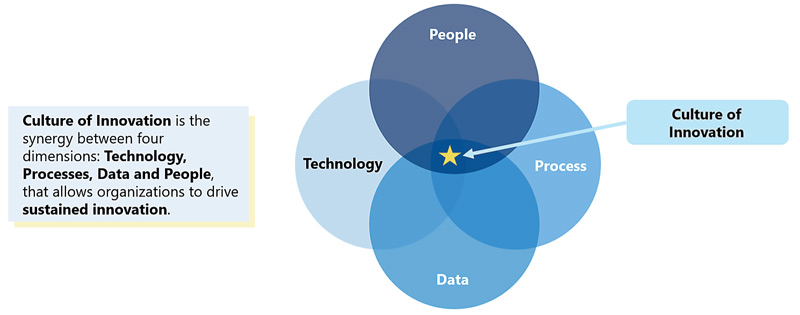Tuesday Feb 17, 2026
Tuesday Feb 17, 2026
Friday, 16 July 2021 00:00 - - {{hitsCtrl.values.hits}}

 In times of uncertainty, every decision an organisation makes becomes critical. The last year has been a catalyst for resilient innovation in Sri Lanka; from reinventing supply chains to implementing remote working, businesses in every sector have relied on digital transformation to survive. Sri Lankan organisations have traditionally approached decision making as a centralised function. With the use of data analysis, these critical decisions can gain a much broader perspective.
In times of uncertainty, every decision an organisation makes becomes critical. The last year has been a catalyst for resilient innovation in Sri Lanka; from reinventing supply chains to implementing remote working, businesses in every sector have relied on digital transformation to survive. Sri Lankan organisations have traditionally approached decision making as a centralised function. With the use of data analysis, these critical decisions can gain a much broader perspective.
By definition, data-driven decision making involves the use of data to inform operational and strategic decisions across every business function. Data helps businesses differentiate their products, understand their customers better and create new revenue streams and business opportunities. While data analytics have been a force for change in countless regions across the world, its potential remains yet to be explored in Sri Lanka due to a few reasons:
In a study conducted by Microsoft in partnership with IDC Asia Pacific, 74% of all business decision makers in the Asia Pacific said that innovation is now a ‘must’ for them to recover and react to the changing market. The study measures different organisations’ approaches to innovation with a ‘Culture of Innovation maturity’ rating (based on four dimensions of technology, processes, data and people), which has shown an overall increase in 11%, indicating increased agility since the start of the pandemic.
Local advantage
Facing challenging economic conditions worldwide, global markets are shifting their focus to local opportunities. In the coming period, the success Sri Lankan exports will depend on diversification of the supply chain to favour local production and avoid reliance on international components.
As Sri Lanka’s apparel, tea, rubber, coconut, seafood and gem industries seek out ways of maximising on local demand, data analysis can be an extremely useful tool. A study by Harvard Business Review Analytics Services found that 49% of organisations were successful in using analysed data to improve operational efficiency and 40% were successful in improving customer experience; these factors can help establish competitive advantage.
Whether in the case of the agriculture industry rerouting supply chains to meet local demand or the apparel industry pivoting to production of PPE production, data analysis can give local exporters a second chance at home. Data-driven decision making can improve competitiveness for the whole industry; supply chain efficiency can drive down costs, customer insights can help uncover new revenue streams, and above all else, workforces can develop a Culture of Innovation.
Investment in knowledge
As the world embraces and adapts to remote working, Sri Lanka has a unique opportunity to reposition itself as a knowledge services hub. Home to a flourishing IT and business process outsourcing (BPO) industry, Sri Lanka offers access to low-cost business environments and highly skilled human capital, yields high literacy rates and produces a steady export of managers, engineers, doctors and technicians to the rest of the world every year. Remote working has become widely adopted, and companies from anywhere in the world can access Sri Lanka’s vast resource of skilled labour.
As this opportunity unfolds, Sri Lanka faces one significant hurdle: a recently diminished country ranking on the 2019 A. T. Kearney’s Global Services Location Index. From amongst 50 countries, Sri Lanka dropped from an impressive 11th rank in 2017 to 25th in 2019, after the introduction of a new metric for performance: digital resonance.
This new factor measures an outsourcing destination’s capacity for automation and cybersecurity, measuring digital skills of the labour force, start-up funding and digital output. While Sri Lanka has been slow to keep up with the factor of digital resonance, the knowledge services industry has a unique opportunity to accelerate its progress with data-driven decision making.
The Culture of Innovation study conducted by Microsoft and IDC Asia Pacific – which observed manufacturing, financial services, retail, education and healthcare sectors – gives us an insightful look into the state of the knowledge services industry in Sri Lanka and the rest of the region. In a local context, the knowledge services industry is the best equipped to generate data driven insights and implement enterprise-wide collaboration, decision making and knowledge sharing. The success of data driven decisions making is determined by culture, and no other industry is better suited to embrace a data culture than Sri Lanka’s highly skilled knowledge services sector.
In the Harvard Business Review Analytics Services study, 61% of respondents cited the biggest obstacle for efficient use of analytics as lack of skills and training. For Sri Lanka to become a global knowledge services hub, we must invest in people and culture. It takes a highly skilled workforce to implement data analysis efficiently, and finding a global competitive advantage starts by investing in an industry-wide Culture of Innovation.
Resilience starts from within
Data-driven decision making has the potential to elevate key industries in Sri Lanka to reach a global competitive advantage – if it can be implemented effectively. The Culture of Innovation study observes that 98% of the highest performing organisations (categorised as ‘leaders’), share the belief that innovation is the key to responding quickly to market challenges and opportunities.
To ensure that data-driven decision making delivers real-world business value, Sri Lankan organisations can take the following steps.
Data analytics has a pivotal role to play in defining the future of Sri Lanka’s position in the global economy. The road to economic recovery must begin with transformative cultural change from within.
(The writer is Country Manager, Microsoft Sri Lanka and Maldives)